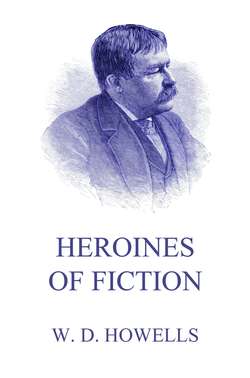Читать книгу Heroines Of Fiction - William Dean Howells - Страница 21
На сайте Литреса книга снята с продажи.
JANE AUSTEN'S ANNE ELIOT AND CATHARINE MORLAND
ОглавлениеTHAT protest already noted, that revolt against the arrogance of rank, which makes itself felt more or less in all the novels of Jane Austen, might have been something that she inhaled with the stormy air of the time, and respired again with the unconsciousness of breathing. But whether she knew it or not, this quiet little woman, who wrote her novels in the bosom of her clerical family; who was herself so contentedly of the established English order; who believed in inequality and its implications as of divine ordinance; who loved the delights of fine society, and rejoiced as few girls have in balls and parties, was in her way asserting the Rights of Man as unmistakably as the French revolutionists whose volcanic activity was of about the same compass of time as her literary industry. In her books the snob, not yet named or classified, is fully ascertained for the first time. Lady Catharine de Burgh in " Pride and Prejudice," John Dashwood in "Sense and Sensibility," Mr. Elton in "Emma," General Tilney in "Northanger Abbey," and above all Sir Walter Eliot in "Persuasion," are immortal types of insolence or meanness which foreshadow the kindred shapes of Thackeray's vaster snob-world, and fix the date when they began to be recognized and detested. But their recognition and detestation were only an incident of the larger circumstance studied in the different stories; and in " Persuasion " the snobbishness of Sir Walter has little to do with the fortunes of his daughter Anne after the first unhappy moment of her broken engagement.
